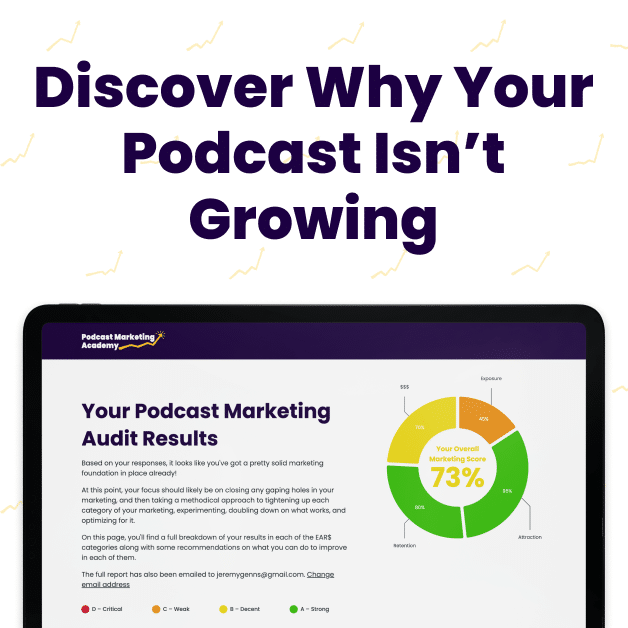There’s a quote from famed Venture Capitalist, Marc Andreessen that I can’t stop thinking about in the context of podcasting.
“The only thing that matters is getting to Product-Market Fit.”
The advice is directed at early-stage founders building companies on the Internet.
But from a certain perspective, that’s what all of us are doing. The only difference is that our “products” are podcasts rather than software.
Regardless of the medium we’re building in, however, when attempting to build an audience, customer base, or both, your single most important job early on is finding your way to Product-Market Fit (or in our case Podcast-Market Fit) and to get there as quickly as possible.
Podcast-Market Fit is one of those know-it-when-you-feel-it phenomenons that is hard to put a precise definition to.
It might be best described, however, as the palpable demand or pull of an audience for what you’re creating.
Where every one of your ideal listeners immediately reaches for their phone to subscribe when you tell them about your show.
Achieving Podcast-Market Fit is probably the biggest turning point in a show’s lifespan.
It’s when word-of-mouth growth begins to take off, where everyone in your niche seems to know about (if not be a listener of) your show, where there is a palpable buzz about your show and your work.
Perhaps most of all, it’s when marketing becomes a whole lot easier.
You’ll still need to market your show, of course.
But you’re now marketing something you have verifiable proof your audience is legitimately hungry for.
Despite the turning point Podcast-Market Fit represents, however, almost no one (at least in podcasting) approaches finding it with any strategy or rigor.
This is in sharp contrast to the tech world, where founders obsessively seek out Product-Market-Fit as though their companies’ futures depend on it.
Because they do.
And so does every podcast’s.
Sure, we as small creators have the luxury (yes luxury) of not having hundreds of thousands (or millions) of dollars in funding, meaning we have infinite runway to develop our ideas.
But while the financial costs of keeping a podcast running might be nominal, the energetic costs are not.
No matter how in love with our shows we might be, few of us are willing to continue pouring our time and energy into a show that lacks traction indefinitely.
Which means our runway is limited.
And every month that passes without finding Podcast-Market Fit, we burn through a little more of our limited energy reserves and move a little closer to the inevitable end of our shows.
This is why the only thing that matters early on is finding Fit.
If you’re serious about finding it, you’ll want to do more than shooting in the dark, producing and promoting episodes, and then hoping for the best.
Instead, you’ll want to approach it systematically.
By running the Smash or Pass Test, not just once, but dozens of times.
Tweaking your messaging, your content, and even your show concept as you go.
I know what you’re thinking: This is a lot of work.
And you’re right. It is.
But…
It’s a tiny fraction of the work it takes to create and (attempt to) market a show that doesn’t have Fit for hundreds of episodes before ultimately shutting it down and moving on to something else.
It’s the work that sets everything up to be easier, more fun, and more energizing… not to mention more profitable.
Don’t put this work off.
Because early on, it’s the only work that matters.





